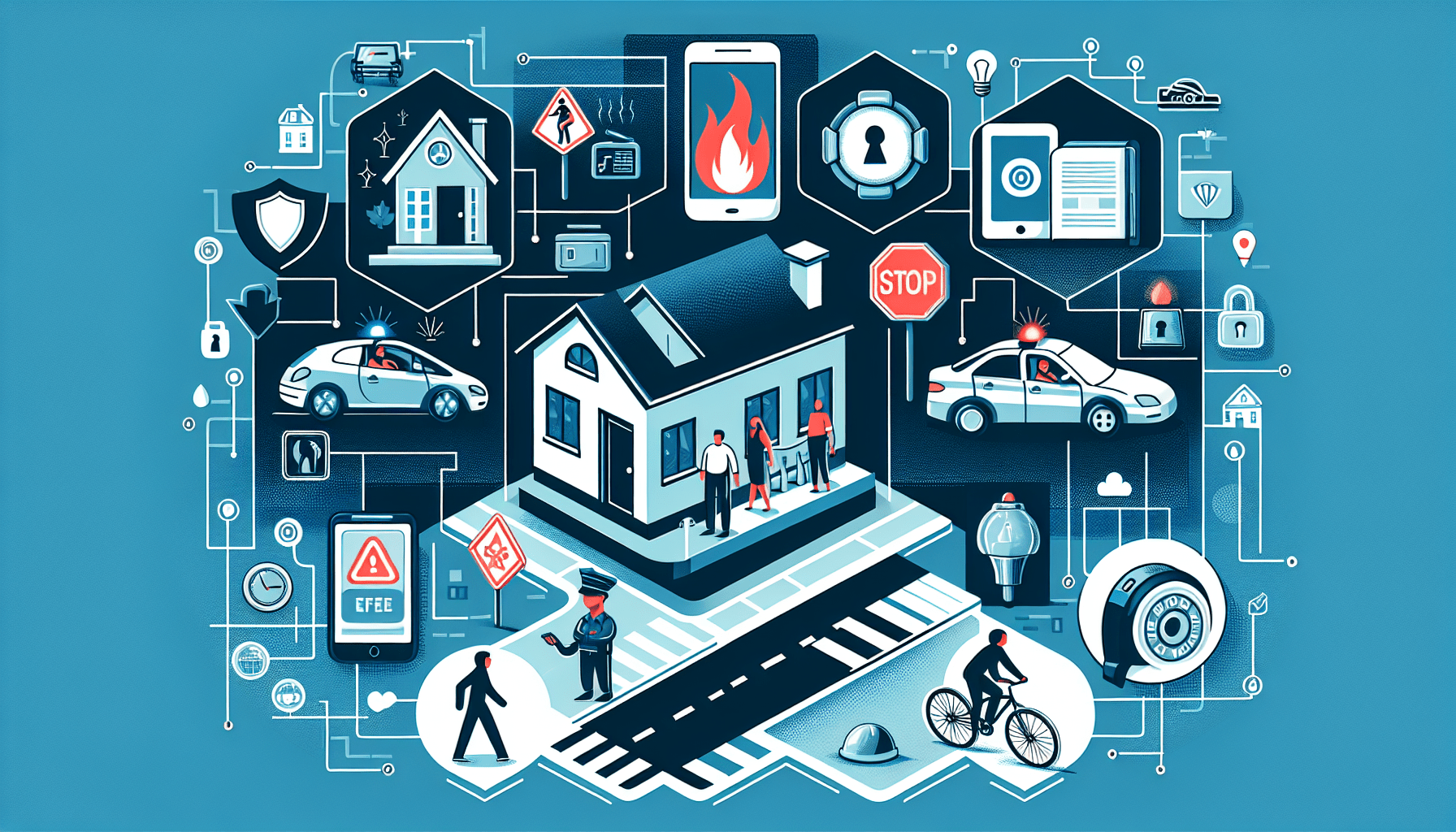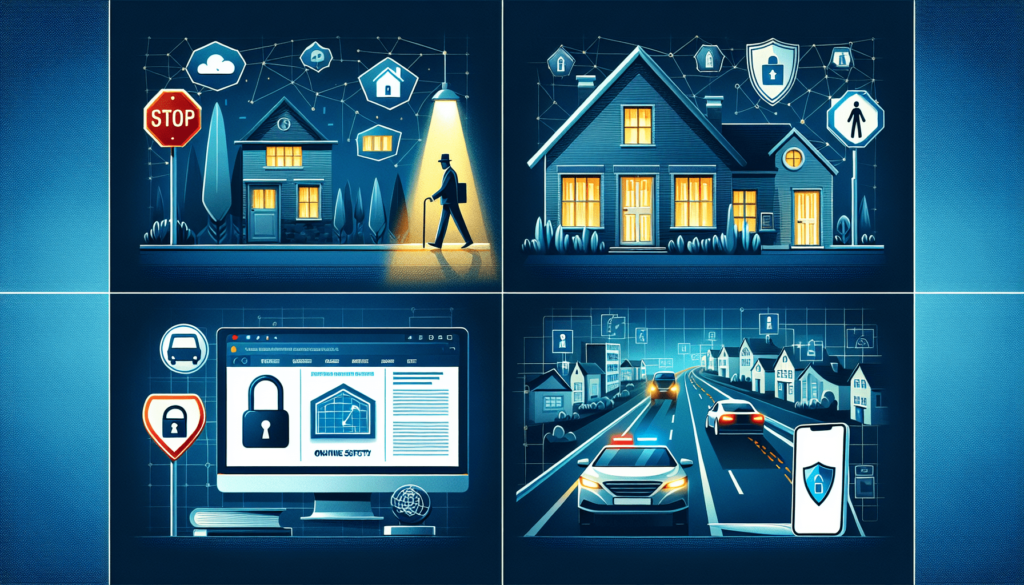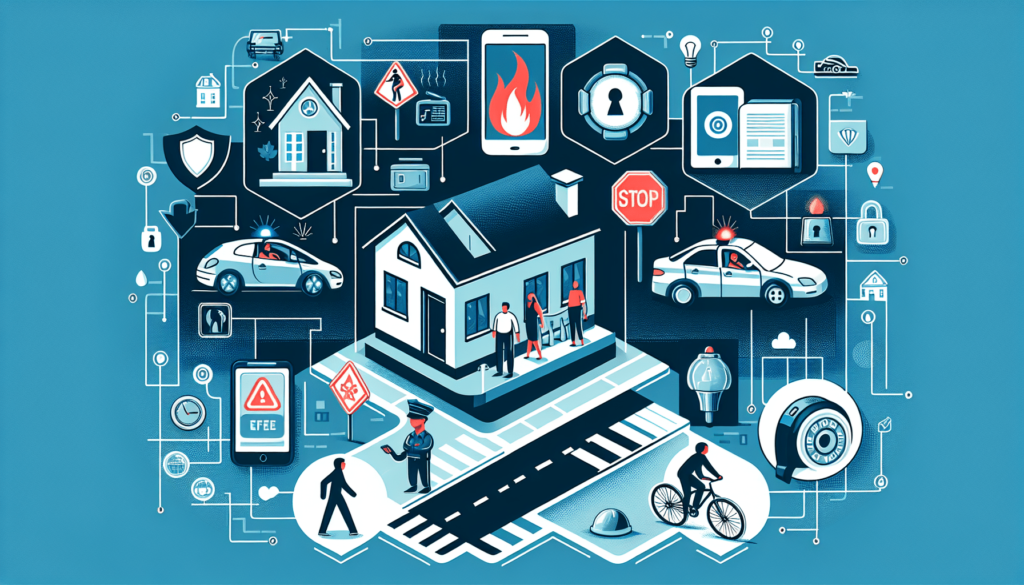
Are you planning a trip to the picturesque island of Mykonos? Exciting! As you embark on your adventure, it’s crucial to prioritize your safety to ensure a smooth and enjoyable experience. In this article, we will provide you with invaluable safety tips specifically tailored for Mykonos, allowing you to explore this stunning destination worry-free. So, fasten your seatbelts as we take you through essential precautions, local insights, and practical advice that will help you make the most out of your time in Mykonos, while keeping you safe and secure.

General Safety Tips
When traveling, it’s important to prioritize your safety. Being aware of your surroundings is crucial in any unfamiliar place. Take note of the people around you, your surroundings, and any potential hazards. Trust your instincts – if something feels off, it probably is. Your gut feeling can often guide you in making the right decisions to keep yourself safe.
Keeping your belongings secure is another key aspect of staying safe. Always ensure that your bags and valuables are well-protected. Use locks or secure compartments when necessary. It’s also a good idea to keep important documents, such as your passport, in a secure location. Remember, a little precaution can go a long way in preventing theft or loss.
Stay in well-lit areas, especially during nighttime. Illuminated places provide better visibility, reducing the chances of tripping or encountering potential dangers. Well-lit areas also act as a deterrent for criminals, making it less likely for them to target you. Additionally, try to avoid walking alone at night whenever possible. Being in a group or utilizing reputable transportation options can greatly enhance your safety.
Safety Tips for Public Transportation
Using public transportation while traveling can be a convenient and cost-effective option. However, it’s important to be cautious and take necessary safety measures. One helpful tip is to keep an eye on your belongings at all times. Be mindful of your bags or backpack and ensure that nothing is left unattended. This will help prevent theft or the loss of your personal items.
Avoid crowded areas if possible. While crowded public transportation hubs may be inevitable at times, try to find less crowded sections if they exist. This reduces the chance of encountering any unwanted situations. If you do find yourself in a crowded area, be especially mindful of your personal space and belongings.
Pickpockets can be common in crowded places, so it’s crucial to be aware of your surroundings. Keep an eye on individuals acting suspiciously and avoid showing off your valuables. Be cautious of distractions, such as someone bumping into you or creating a commotion, as these could be techniques used by pickpockets to divert your attention.
Knowing the emergency exits on buses, trains, or other forms of public transportation is essential. Familiarize yourself with the layout and location of the exits. This knowledge can be crucial in case of any emergency situations. Additionally, make sure to follow all the rules and regulations of the public transportation system you are using. This helps maintain a safe environment for everyone.
Safety Tips for Accommodation
Choosing reputable and secure accommodations is vital to ensure your safety while traveling. Research the accommodations beforehand and read reviews to get an idea of their security measures. Opt for reputable hotels or guesthouses that prioritize the safety of their guests.
Once you’ve checked in, remember to lock your door at all times, whether you’re leaving your room or inside it. This simple yet effective precaution reduces the risk of unauthorized entry. Additionally, make use of any safety features provided by your accommodation, such as a safe for storing valuables. Using the hotel safe gives you peace of mind that your important documents and possessions are secure.
Inquire about the emergency procedures at your accommodation. Familiarize yourself with the evacuation routes and protocols in case of fire or other emergencies. Knowing where the emergency exits are located and how to access them can be crucial in a potentially dangerous situation. If you have any concerns or questions, don’t hesitate to ask the staff for clarification.
It’s important to inform the staff about your plans, especially if you’re traveling alone. Let them know of any excursions you’re planning or if you’ll be out late at night. This way, they can keep an eye out for your return and assist you if needed. Establishing good communication with the staff creates an additional layer of safety during your stay.
Safety Tips for Walking and Hiking
Walking and hiking can be incredibly enjoyable activities when exploring new places. However, it’s essential to prioritize your safety while doing so. Stick to well-marked paths and trails to avoid getting lost or venturing into potentially dangerous areas. These paths are often maintained for tourists’ safety, ensuring they are safe and relatively free from hazards.
Before setting off on your hiking adventure, always bring a map or use GPS navigation. This will help you stay on track and navigate your way back if needed. Having a sense of direction minimizes the chances of getting lost and ensures a smoother hiking experience.
Wearing appropriate footwear is crucial for your safety and comfort while walking or hiking. Invest in sturdy walking shoes or hiking boots that provide proper traction and support. These types of footwear can help prevent slips, falls, or injuries while you explore new terrains.
Carrying enough water and snacks is essential, especially during long walks or hikes. Staying hydrated is crucial for your well-being, especially in warm weather or high altitudes. Packing snacks ensures that you have enough energy to keep going. Additionally, consider bringing a small first aid kit with essentials like band-aids, antiseptic wipes, and pain relievers.
Before embarking on a hike, it’s always a good idea to tell someone your plans. Inform a trusted friend or family member about your itinerary, including the hiking route, estimated time of return, and any emergency contacts you may have. In the event that something goes wrong, this information can be vital in locating you and providing assistance.

Safety Tips for Water Activities
Water activities such as swimming, snorkeling, or boating can be incredibly enjoyable, but they come with their own set of safety considerations. When partaking in water activities, always wear a life jacket, even if you are a strong swimmer. Life jackets provide invaluable flotation and can save lives in emergency situations.
Stay within designated swimming areas, particularly in unfamiliar bodies of water. These areas are usually monitored for safety and have been assessed to ensure they do not pose significant risks. Swimming outside these designated areas can be dangerous due to unseen currents or other hazards.
Before engaging in any water activities, it’s important to know the local water conditions. Be aware of things like strong tides, rip currents, or dangerous wildlife. Understanding the specific risks associated with the location enhances your safety and allows you to make informed decisions.
Avoid consuming alcohol before participating in water activities. Alcohol impairs judgment, coordination, and reaction time, making accidents more likely to happen. Stay sober and fully aware of your surroundings to ensure your safety and that of others around you.
Learning basic water rescue skills can be invaluable, especially if you’ll be near bodies of water frequently. Knowing techniques such as how to float, tread water, or perform basic rescue maneuvers can potentially save lives in emergency situations. Consider taking a water safety or lifeguard training course before engaging in water activities.
Safety Tips for Nightlife
When enjoying the nightlife during your travels, it’s important to prioritize your safety and make responsible choices. Drinking responsibly is crucial for your well-being and personal safety, as excessive alcohol consumption can impair judgment and make you more vulnerable to various risks.
Don’t accept drinks from strangers or leave your drink unattended. Unfortunately, drink spiking incidents can occur in busy nightlife areas. By being cautious and vigilant, you can help minimize the risk of becoming a victim of such incidents. If you need to use the restroom or step away from your drink, finish it first or ask a trusted friend to keep an eye on it.
Staying with your group provides an extra layer of safety when enjoying the nightlife. There is strength in numbers, and being in a group reduces the likelihood of becoming a target for unwanted attention or potential harm. Look out for one another and make sure everyone gets home safely.
Using reputable transportation options is key when leaving venues late at night. Pre-arrange reliable transportation, such as licensed taxis or ride-sharing services, to ensure a safe journey back to your accommodation. Avoid accepting rides from unmarked or unofficial vehicles, as these can be potentially dangerous.
When leaving venues late at night, it’s important to be cautious and aware of your surroundings. Stay in well-lit areas and walk confidently. It’s a good idea to have your phone easily accessible to make emergency calls if needed. If you feel uncomfortable or sense any potential danger, trust your instincts and find a safe place or ask for assistance.
Safety Tips for Solo Travelers
Solo travel can be an incredibly rewarding experience, but it’s important to prioritize your safety when exploring alone. Before you embark on your journey, research your destination thoroughly. Familiarize yourself with the local customs, laws, and potential safety concerns specific to that area. Having this knowledge beforehand allows you to make informed decisions and plan accordingly.
Share your itinerary with someone you trust, such as a family member or friend. Provide them with details about your travel plans, including dates, accommodation information, and any activities or excursions you have planned. This way, they are aware of your whereabouts and can reach out to you or assist if needed.
Stay connected with your loved ones while traveling. Regularly check in with them to let them know you are safe and update them on your travel experiences. Utilize technology, such as messaging apps or video calls, to stay in touch. This not only provides peace of mind for both parties but also ensures someone is aware of your current situation.
Avoid displaying signs of wealth or drawing unnecessary attention to yourself as a solo traveler. Dress modestly and be mindful of your surroundings. Being inconspicuous can reduce the likelihood of being targeted by pickpockets or other potential criminals.
Be cautious when making new acquaintances while traveling alone. While it’s great to meet new people and make connections, it’s important to approach new acquaintances with caution. Trust your instincts and use your judgment. Avoid divulging too much personal information and be wary of individuals who may have ulterior motives.
Safety Tips for Money and Documents
When it comes to money and documents, taking precautions can help protect yourself from potential loss or theft. Carry only necessary cash and cards to minimize the risk of losing all your funds in one go. It’s a good practice to keep some cash hidden in a separate location, as an emergency backup in case of loss or theft.
Keep important documents, such as your passport, secure at all times. Consider using a money belt or a concealed pouch that keeps your documents close to your body, making them less accessible to potential thieves. Additionally, if your accommodation offers a safe, make use of it to store valuable items when you’re not using them.
Make copies of important documents, including your passport, identification cards, and travel insurance policies. Keep these copies in a separate location from the originals or store them digitally. Having copies can be immensely helpful in case of loss or theft, as they serve as backup documentation.
Consider using RFID-blocking products, such as passport wallets or RFID-blocking sleeves for your cards. These items help prevent unauthorized scanning or theft of your personal information. With the increasing prevalence of technology-related crimes, taking extra precaution can offer added peace of mind.
Avoid using ATMs in isolated or poorly lit areas. Opt for ATMs located in banks, shopping centers, or other well-trafficked areas. This reduces the risk of being targeted by criminals who may try to steal from you or tamper with the ATM. Stay vigilant and cover the keypad when entering your PIN to protect your information.
Safety Tips for Emergency Situations
Even with precautions, emergencies can happen. Being prepared and knowing how to react can greatly enhance your safety. It’s important to know the local emergency numbers for police, ambulance, and fire services. Learn these numbers beforehand, as they can be different from what you are accustomed to in your home country.
In the event of an emergency, it’s crucial to stay calm and follow instructions. Panic can cloud judgment and hinder your ability to make rational decisions. Listen carefully to guidance from emergency personnel or local authorities to ensure your safety and that of others around you.
If you are traveling with a group, make sure everyone has a plan for communication in case of separation during an emergency. Establish a meeting point or designate a reliable mode of communication, such as a specific phone number or messaging app. This ensures that you can regroup and stay connected during chaotic situations.
Familiarize yourself with evacuation procedures specific to your accommodation or the area you’re visiting. Take note of emergency exits, evacuation routes, and any designated meeting points. This knowledge can be crucial in case of fire, natural disasters, or other emergencies. Act quickly and follow the instructions provided.
In times of emergency, always prioritize the guidance and instructions of local authorities. They have the experience and knowledge to handle emergency situations effectively. Be cooperative, respectful, and follow their advice. By doing so, you contribute to the overall safety of the community and yourself.
Safety Tips for Health and Wellbeing
Taking care of your health and wellbeing is just as important as physical safety while traveling. Before your journey, research the necessary vaccinations required for your destination. Visit a healthcare professional to ensure you are up to date with vaccines and receive any additional ones recommended for your destination.
Carrying a basic first aid kit can be immensely helpful during your travels. Include items like band-aids, antiseptic wipes, pain relievers, and any necessary prescription medications. Having these essentials readily available provides a sense of security in case of minor injuries or ailments.
Staying hydrated is crucial, especially in warmer climates or during physical activities. Drink plenty of water, preferably bottled, to avoid dehydration. Keep in mind that tap water may not always be safe to consume in certain destinations. Opting for bottled water is a safer choice to avoid waterborne illnesses.
Practice safe sun exposure to prevent sunburn and other sun-related complications. Apply sunscreen with a high SPF and reapply regularly, especially if you’ll be spending long hours outdoors. Wearing a hat, sunglasses, and lightweight, breathable clothing can provide additional protection from the sun’s harmful rays.
Be cautious with street food, especially in countries with different hygiene standards. While street food can offer enticing culinary experiences, it’s important to choose vendors wisely. Look for clean food stalls with high turnover, as this indicates freshness. Observe how the food is handled and cooked. If in doubt, opt for cooked foods or stick to established food establishments.
By following these comprehensive safety tips, you can enhance your security and well-being while traveling. Remember, being prepared, aware of your surroundings, and using common sense are key to ensuring a safe and enjoyable travel experience. Happy travels!

